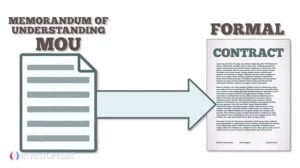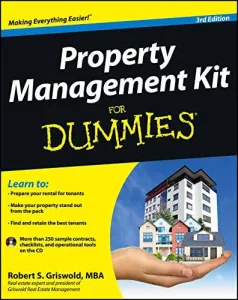Memorandum of Agreement or “deal sheet” in NYC Real Estate
April 5, 2021 by Georges Benoliel
Go Back To Previous Page
If you are looking into how a real estate transaction works, you’ve seen just how much paperwork it involves. It seems like there’s just document after document, and keeping track is hard. To help you out, we’ve compiled a comprehensive review of one of those documents: a Memorandum of Agreement (MOA) template, Memorandum of Understanding (MOU), or deal sheet. This review will outline everything you need to know about this real estate document, making it easy to understand.
What is a Memorandum of Agreement? Is it a legally binding document? What happens if you break the agreement? What can you expect to see in a Memorandum of Agreement sample?
A memorandum of agreement is a proposed transaction summary circulated to lawyers and brokers representing the buyer and the seller after an accepted offer.
So, if you have had those questions, read on. After reviewing this review, you’ll find everything you need about the Memorandum of Agreements.
What is a Memorandum of Agreement (MOA) in Real Estate?
A Memorandum of Agreement may sound complicated and contain legal jargon that can be difficult to understand. Still, it’s a pretty easy document to read and understand. You may not be familiar with the term’ memorandum.’
document to read and understand. You may not be familiar with the term’ memorandum.’
However, you’ve likely heard of a deal memo. If you didn’t know, the word “memo” is short for “memorandum,” so this document is simply a memo.
The agreed-upon objective for both the buyer and the seller is to enter into a formal contract, signed by both parties, through cooperative work, shared goals and objectives, and good faith.
The buyer and the seller share the same plan and agree to collaborate to finalize a deal, committing to meet an agreed-upon deadline to sign the purchase contract.
But a memo detailing what?
Memos are typically brief and concise, and a simple Memorandum of Agreement is no exception.
This document summarizes a proposed transaction that may or may not happen. We use this memo in real estate, and the form summarizes agreed-upon terms that both sides have agreed to and would like to move forward with.
The document’s “deal sheet” point informs the lawyers on both sides of the sale what the real estate agents and their respective buyers and sellers have agreed.
respective buyers and sellers have agreed.
Is an “MOA” or “MOU” Legally Binding?
As you are aware, a Memorandum of Agreement sample is a summary of a potential transaction that may or may not occur. So, the short answer is no; this document is not legally binding, at least not on its own.
Once a purchase agreement is signed, the deal is binding. However, as you’ll learn, that has more to do with the purchase agreement than the memorandum.
Since they are not legally binding, it is common for either party to break a Memorandum of Agreement.
Perhaps the seller has second thoughts about selling their house. Or maybe they get a higher offer before both parties sign the purchase contract or agreement.
Who Prepares the Deal Sheet in NYC?
In New York City, a real estate deal sheet is typically prepared and distributed by the listing agent. Once an offer is accepted, the listing agent sends a template to the buyer’s agent, requesting that they complete the buyer’s section of the term sheet. After the buyer’s agent finalizes their portion and returns it to the listing agent, the document is usually completed and shared with all brokers and lawyers involved in the transaction.
An experienced listing agent will also provide due diligence documents along with the deal sheet. These documents may include the original condo or co-op offering plan, the building’s annual financial statements, and the purchase application.
If you are selling your property through an Agent Assisted FSBO (For Sale By Owner), you will need to prepare a draft of the deal sheet once you have accepted an offer. It is advisable to prepare in advance by gathering the necessary due diligence documentation and hiring a real estate lawyer.
What Happens if You Break a Memorandum of Agreement?
So, if a Memorandum of Agreement is not legally binding, what are the repercussions for breaking it? Since they’re not legal documents, breaking a Memorandum of Agre has no legal consequences.
has no legal consequences.
However, there can be other consequences when a buyer or seller breaks them. The most common issue is that someone (typically the buyer) may incur some costs.
Sometimes, buyers pay for their attorney to conduct a title search and investigate the property. They might also pay for the home inspection out of their pocket. If either occurs, the buyer will likely be out of those costs if the seller decides to back out of the Memorandum of Agreement.
Secondly, breaking a Memorandum of Agreement can leave brokers and other parties involved with a bad taste in their mouths. As a buyer or seller, if you allow your real estate agent to negotiate a price and you’ve come up with a Memorandum of Agreement, your agent is likely expecting the deal to come to fruition shortly.
If you back out and break the Memorandum of Agreement, the counterparty and your agent will probably be upset with you. This could cause issues with the same agent.
What does a Memorandum of Agreement include?
As you’ve probably gathered by now, a Memorandum of Agreement template is pretty straightforward. It is no more than a summary of a proposed transaction that outlines the terms agreed upon to date.
The document does not include much data, making it easy for both parties to fill out and understand before the lawyer’s jargon becomes too complex.
Look at some things you typically see within a Memorandum of Agreement template. This will include the following:
- Effective Date and MLS number
- Property address
- Sale price
- Any additional terms and contingencies
- Closing date
- Inclusions and exclusions explicitly described the scope of work, if any, for the renovation.
- Seller’s and buyer’s names and addresses
- Both sides ‘ attorneys’ names, firms, addresses, phone numbers, fax numbers, and email addresses
- Both sides ‘ brokers’ names, addresses, agent names, phone numbers, email, agent license IDs, and brokerage license numbers
That may seem like a lot of information just by looking at the bulleted list, but in reality, it’s all basic information that you can fill out in just minutes once the buyer and seller have negotiated the terms of the deal. However, remember that even though a Memorandum of Agreement sample will include the sale price, closing date, and information for all parties involved in the sale, it is not legally binding or enforceable.
 document to read and understand. You may not be familiar with the term’ memorandum.’
document to read and understand. You may not be familiar with the term’ memorandum.’ respective buyers and sellers have agreed.
respective buyers and sellers have agreed. has no legal consequences.
has no legal consequences.

